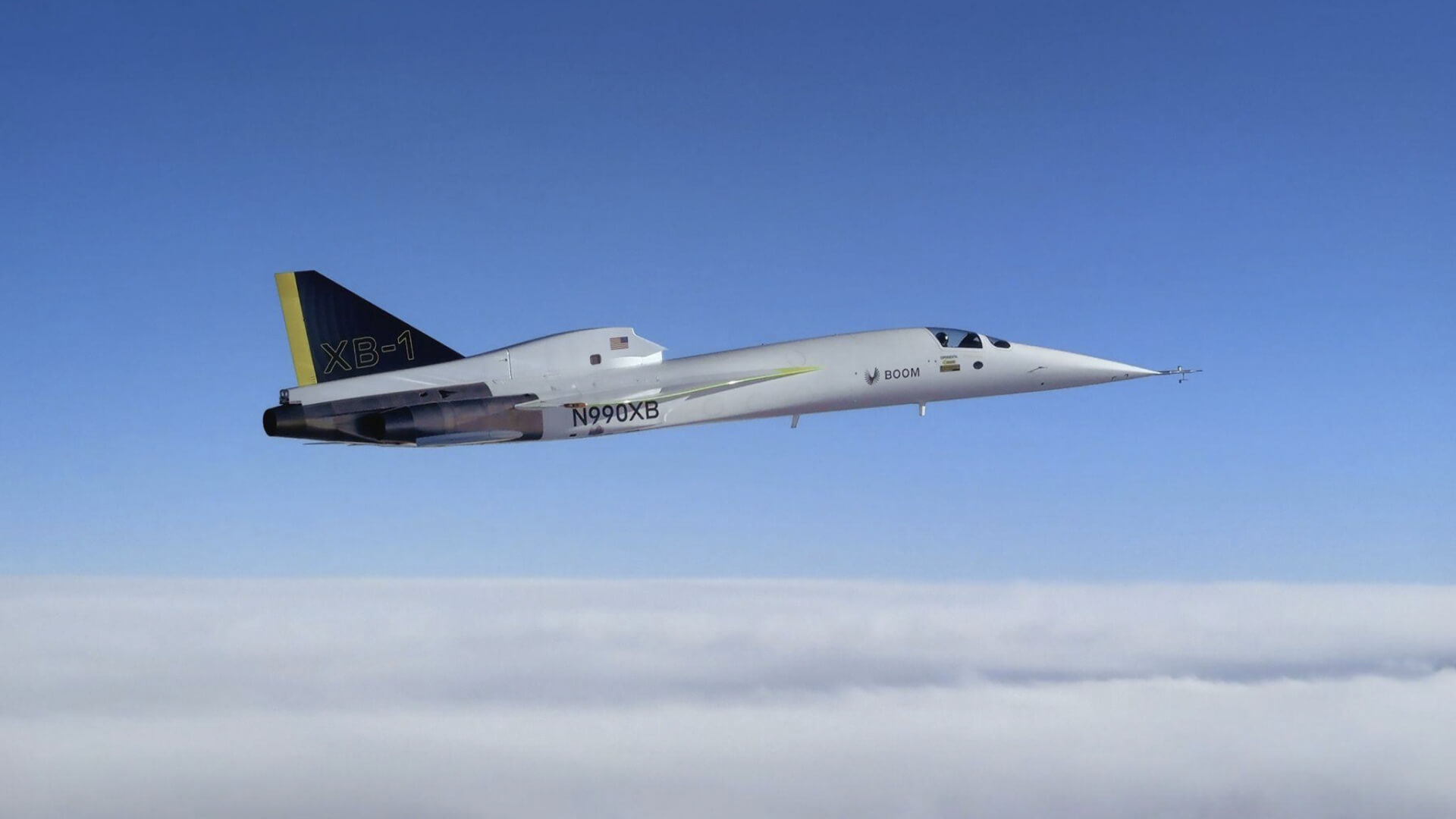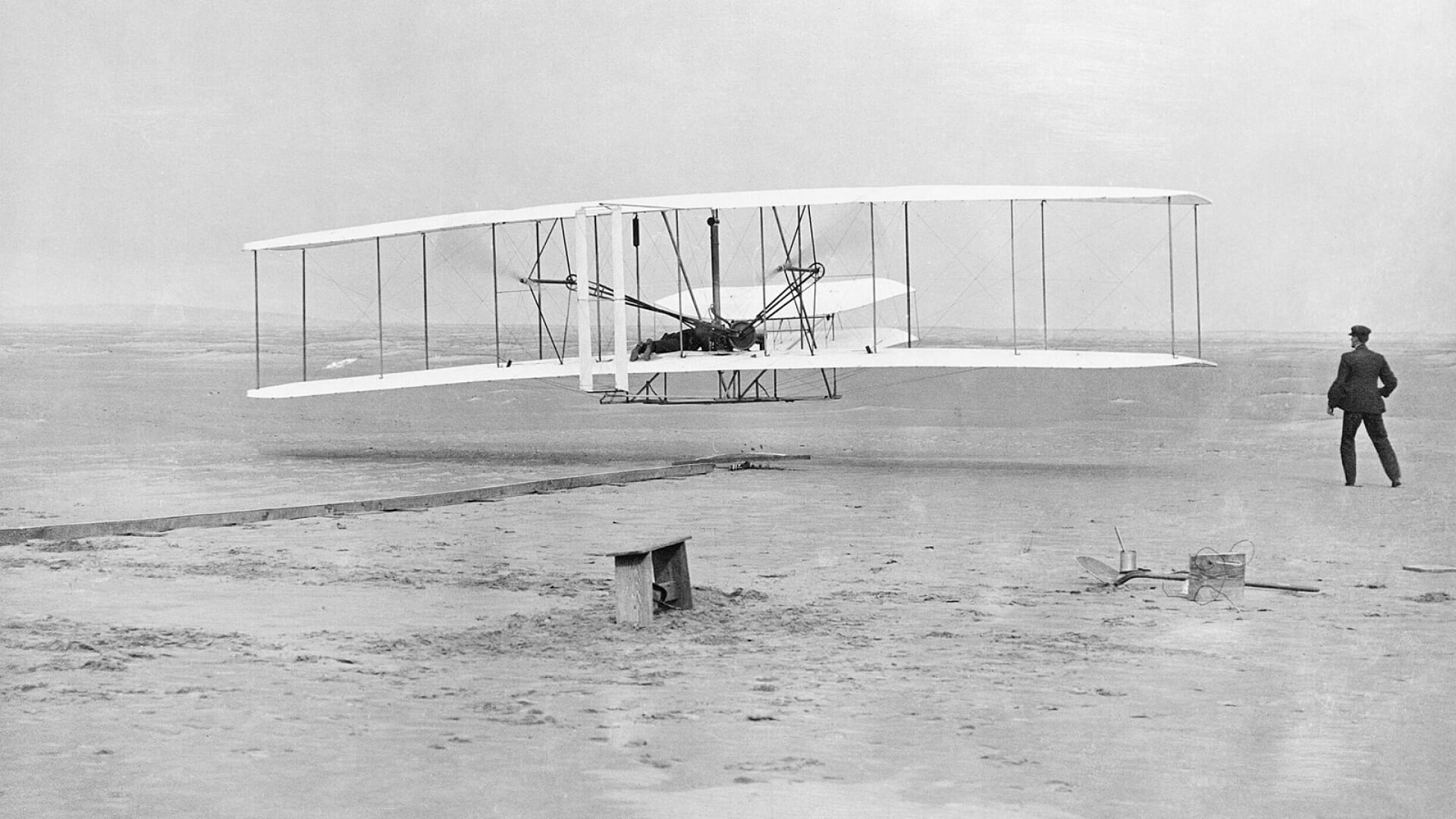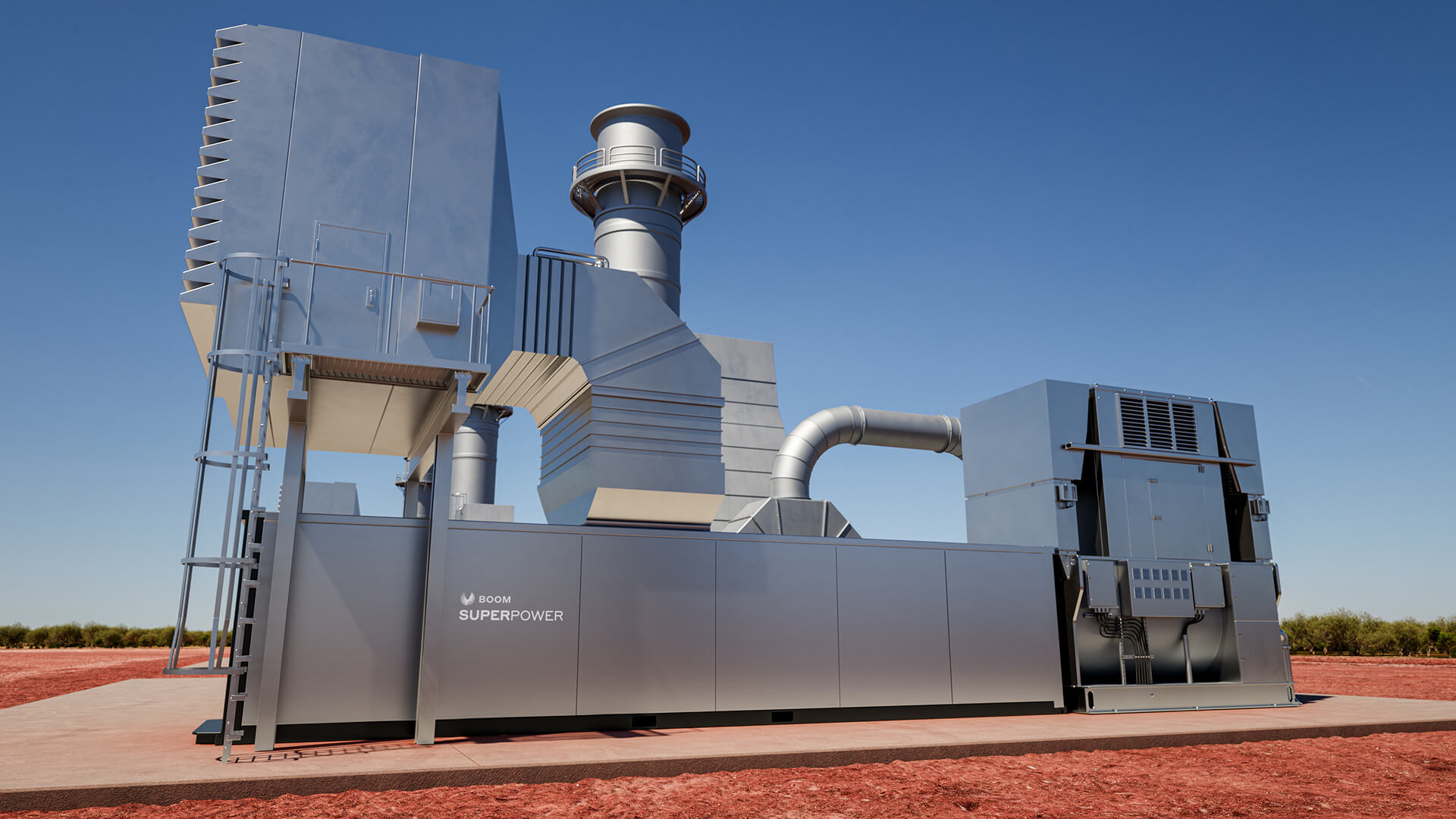Travel plays a vital role in society, connecting people, driving economic growth, and fostering global exchange. It’s increasingly urgent that the planet we travel remains healthy; that travel is a net good on all dimensions.
Travel & Leisure recently announced its recipients of their 2022 Global Vision Awards, spotlighting companies, organizations, and individuals taking actionable, quantifiable steps to protect communities and environments around the world, and inspiring their industry colleagues and travelers to do their part. Boom Supersonic is proud to be included on this impressive list.
Sustainability is core to our mission and ethos at Boom. We’re building the world’s first sustainable supersonic aircraft capable of flying entirely on sustainable aviation fuel (SAF). But our broader aim is to take a comprehensive lifecycle approach to sustainability, within corporate operations and across all phases of the Overture program—from design, build, and fly, through to the aircraft’s eventual recycling. As the first aircraft manufacturer to sign The Amazon Climate Pledge, Boom made an early commitment to be net zero carbon across our business by 2040, 10 years ahead of the Paris Agreement.
Boom Supersonic’s 2021 Environmental Sustainability Report sets forth the company’s holistic approach to environmental well-being and commitment to a scalable and sustainable future for travel. The report is defined by two key pillars: climate and community.
We also understand that travel involves more than flying on a plane. As such, Boom is working to drive transformative and systemic change, partnering with stakeholders across travel ecosystems. In 2021, Boom launched the Sustainable Travel Forum, an independent council of leaders and experts from across the entire travel experience with a collective mission to design the future of sustainable travel. This collective is working to catalyze the action, innovation, and change necessary to meet the urgent challenges we face.
Travel as a net good defined
Global travel introduces many sustainability challenges—environmental, social, and economic. It also facilitates the vital need for people to connect and experience first-hand all our world has to offer. As such, travel should and can be a net good.
When responsibly planned and managed, travel benefits both people and the planet by:
- Supporting social impact and development: Tourism is a tool for community development and can democratize, reduce inequalities, preserve cultural heritage, empower disadvantaged communities, and foster connection, if local populations and all key stakeholders are engaged.
- Stimulating economic growth: Tourism is a key driver globally for economic progress. As one of the fastest growing economic sectors in the world, sustainable tourism can spur job creation, innovation, conscious investment, poverty reduction, urban renewal, and rural development.
- Enhancing environmental protection: Responsible and ethical tourism can support the conservation of biodiversity and reduce ecological and climate impacts.
SAF as a means to sustainable travel
Overture will be capable of net zero carbon operations, enabled by compatibility with 100% SAF. United Airlines has committed to operate its fleet of up to 50 Overture airliners on up to 100% SAF.
SAF is jet fuel made from sustainable and renewable sources. It’s an alternative to fossil jet fuel (Jet A), which is made from crude oil — also called liquid petroleum — that is extracted from the ground. This technology is fast maturing and companies, including Prometheus, AirCo, and Twelve, are working to introduce economical, direct air capture SAF.
A rapid scaling of SAF production to fully satisfy demand is possible in the 2035-2040 timeframe by aligning public and private initiatives. To understand how this growth can be achieved, Boom Supersonic’s Dr. Akshay Ashok (Sustainability and Regulatory Specialist) and Ben Murphy (VP, Sustainability) studied patterns across other renewable energy industries. They identified key drivers that contributed to the success of exponential growth, and applied these proven trajectories to the SAF industry. Their findings, published in the white paper “Scaling Sustainable Aviation Fuel Production,” show how the same key drivers can be applied to the SAF industry to enable its exponential growth.
“The real opportunity is to achieve the aggressive goals that our industry has set for the future,” said Tori Emerson Barnes, Executive Vice President, Public Affairs and Policy, at the U.S. Travel Association. “From sustainable aviation fuels and electric vehicles, to hotels powered by renewable energy or the preservation of beaches and natural attractions, the travel industry is poised to be a leader in achieving our national and global climate goals. The other part of our work is to advocate for policies that will make our industry’s goals a reality.”
Industry collaboration as a necessity
But travel industry leaders and organizations, along with legislation, governance, and investors, cannot create large-scale change by operating in silos. Multi-disciplinary collaboration is key in addressing the wider challenge of making travel sustainable, from packing companies and ground transportation to hotels and restaurants to historical sites and airlines, and everyone else in between.
The Sustainable Travel Forum is an example of cross-sectoral collaboration and a bottom-up approach to systems change. The collective, including founding members from American Express, United Airlines, Japan Airlines, and others, was launched to forge relationships, exchange ideas, and develop solutions to define and build the future of sustainable travel. Forum members convene annually at the Net Good Summit to foster dialogue, ally industries, and inspire cross-sectoral solutions.
Last year’s inaugural summit brought together fifty industry leaders, sustainability experts, and creative thinkers to drive action and innovation in sustainable travel. With twenty-five speakers from backgrounds including aviation, electric vehicles, clean energy, sustainable fuels, tourism boards, and sustainability nonprofits, the event centered around decarbonizing transportation, enabling technologies, sustainability governance, and responsible tourism.
“Sustainability is not going to be solved by just the travel industry. It’s got to be a mixture of the travel industry, legislation, governance, investors, that all come together in a sensible way to try and solve the systemic problems,” said Mark Stevenson, futurist, author, entrepreneur and speaker at the Net Good Summit.
Promoting a bottom-up approach
Transformative change in sustainability can begin at the individual level. Many organizations have seen success from a bottom-up approach by enlisting employees in sustainability initiatives.
When it comes to sustainable travel, there are significant social benefits on the individual level. As people connect with cultures other than their own, they become “global citizens,” furthering inclusive growth by prompting dialogue, celebrating diversity, shifting attitudes, and encouraging mutual understanding. Global citizens also take responsibility for and think critically about broader, global sustainability issues.
The entire travel industry can ignite change and measure the results of their efforts to develop a new future of travel.







